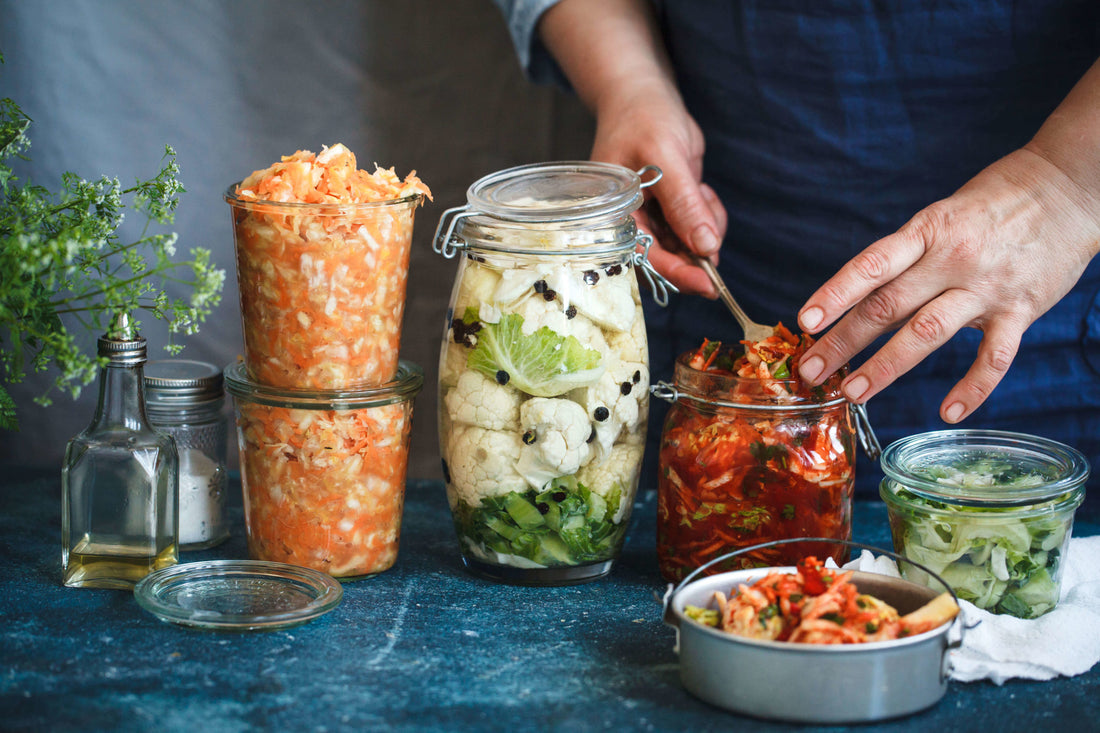
All about fermented foods
Share
You could be forgiven for thinking that fermented foods like kefir, kombucha kimchi and sauerkraut are just the latest in a long line of “health food” fads. However, with origins reaching back over thousands of years, they’re not really a fad at all; instead we should think of them as forgotten foods that are having a well-deserved renaissance. In fact in the East, to this day, fermented foods are a common part of the diet: Russians regularly consume kvass and kefir, while kimchi and other fermented vegetables are staples of Korean and Japanese cooking. Over the last hundred years, we’ve begun to understand that these foods are so good for us because of the probiotic microbes they contain. These can help us by improving our gut health – helping with the diversity of species in our own guts, and making compounds that we need.
These days when probiotics are available in an easy to swallow capsule, you might wonder why we still need to go to the bother of making them ourselves…. Here’s the definitive list of why functional foods can beat a capsule in the boxing ring…
- Variety. Functional foods contain myriad species of probiotic bacteria and also functional yeasts that can all have positive effects on the microbiota. This is likely to more beneficial than a huge influx of a very limited number of species that you’d find in a capsule – sometimes huge numbers of jut one species of probiotic have been implicated in health complications – post surgery for example
- Health. Functional foods are so much more than a capsule. They are nutrient rich sources of vitamins, minerals, short chain peptides, phytonutrients, organic acids, fibre. Food is not just for nutrition, it also protects the microbes from conditions in the GI tract, increasing their chances of arriving unscathed
- Prebiotics. Our fermented vegetables are prebiotic too, containing a range of phytonutrients such as polyphenols and MACs
- Sustainability. These days, probiotic capsules are big business. However, no factories are required in the making of our fermented foods. They are economical and sustainable with no ultra-processing required.
- Functionality. It is possible that the natural symbiosis of strains that grow together are more beneficial that those artificially grouped in probiotic capsules.

1 comment
And taste/eating enjoyment is another reason!!